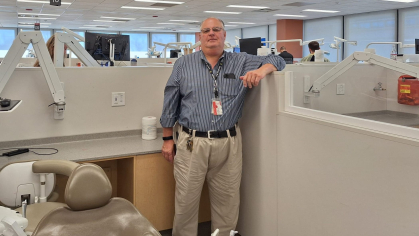Confronting Heart Disease Risks: Insights from Rutgers University–Camden

Understanding the Urgency of Heart Health at Rutgers University–Camden
Heart disease remains a leading cause of death globally, impacting individuals and families across communities. Rutgers University–Camden, recognizing the critical need for proactive heart health management, offers valuable resources and insights to address this pressing concern. This article explores the significance of heart health, the risk factors associated with heart disease, and how Rutgers University–Camden contributes to raising awareness and promoting well-being within its community and beyond.
The Prevalence of Coronary Artery Disease in the USA
Coronary artery disease (CAD), a common form of heart disease, affects millions of Americans. CAD occurs when plaque builds up inside the coronary arteries, narrowing them and reducing blood flow to the heart muscle. This can lead to chest pain (angina), shortness of breath, and eventually heart attack or stroke. Understanding the prevalence and risk factors of CAD is crucial for effective prevention and management.
Jim McIntosh’s Story: A Rutgers University–Camden Case Study
Jim McIntosh, facilities director at the Rutgers School of Dental Medicine, experienced firsthand the impact of family history and heart disease. Despite managing his risk factors through medication and a healthy lifestyle, McIntosh developed coronary artery disease and required bypass surgery. His experience underscores the importance of vigilance and early intervention, even when actively managing known risks. McIntosh’s story serves as a powerful reminder that heart health is an ongoing journey requiring consistent attention. His proactive approach, recognizing warning signs and immediately seeking medical attention, played a crucial role in his successful recovery. This highlights the importance of being aware of one’s body and taking prompt action when something feels amiss.
Learning from Experience: Early Detection Saves Lives
McIntosh’s experience reinforces that early detection of heart disease is paramount for successful treatment and recovery. While family history can significantly increase one’s risk, proactive measures, such as regular checkups, healthy lifestyle choices, and awareness of warning signs, can significantly improve outcomes. Rutgers University–Camden emphasizes the importance of these preventative measures through its various health initiatives and educational programs. McIntosh’s decision to seek immediate medical attention when he experienced unusual symptoms underscores the potentially life-saving impact of early intervention. Individuals should not hesitate to consult with healthcare professionals if they notice any changes in their health, especially if they have a family history of heart disease.
Shorelight Pathways: Supporting International Students’ Well-being
Rutgers University–Camden, in partnership with Shorelight Pathways, welcomes international students from around the world. Shorelight provides comprehensive support services to help international students adjust to their new academic and cultural environment. This includes access to healthcare resources and information, ensuring that students have the necessary tools to prioritize their well-being while pursuing their academic goals. This commitment to holistic student support reflects Rutgers University–Camden’s dedication to fostering a healthy and thriving campus community.
Prioritizing Preventative Care for a Healthier Future
Rutgers University–Camden actively promotes preventative care as a cornerstone of heart health. Through health awareness campaigns, educational workshops, and access to quality healthcare services, the university empowers individuals to take charge of their well-being. This includes promoting healthy lifestyle choices, such as regular exercise, balanced nutrition, stress management, and seeking routine medical checkups. Such initiatives are vital in fostering a culture of health and well-being on campus and within the broader community.
Taking Action: Empowering Your Heart Health Journey
Inspired by Jim McIntosh’s story and Rutgers University–Camden’s commitment to heart health, individuals can take proactive steps to protect their own cardiovascular well-being. Schedule regular checkups with a healthcare provider to monitor blood pressure, cholesterol levels, and other key indicators. Engage in regular physical activity, maintain a balanced diet, manage stress effectively, and avoid smoking. By prioritizing these lifestyle choices, individuals can significantly reduce their risk of developing heart disease and improve their overall quality of life.
Rutgers University–Camden’s Role in Promoting Heart Health Awareness
Rutgers University–Camden plays a crucial role in disseminating vital information about heart disease prevention and management. Through research initiatives, community outreach programs, and partnerships with healthcare organizations, the university contributes to advancing knowledge and improving health outcomes. The university’s commitment to education and awareness-building empowers individuals with the knowledge and resources they need to make informed decisions about their heart health.

